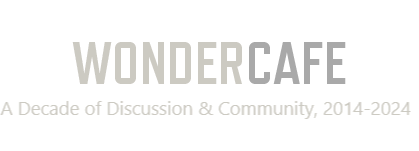Mendalla
Happy headbanging ape!!
- Pronouns
- He/Him/His
In UU'ism, as mentioned before, we have six "Sources of our Living Tradition". They are, quoting directly from the UUA website:
What are your "sources"? Do you have a single source for your spirituality (e.g. the Bible) or do you draw on others? How do you decide what is truly spiritual and what is just informative?
- Direct experience of that transcending mystery and wonder, affirmed in all cultures, which moves us to a renewal of the spirit and an openness to the forces which create and uphold life;
- Words and deeds of prophetic people which challenge us to confront powers and structures of evil with justice, compassion, and the transforming power of love;
- Wisdom from the world's religions which inspires us in our ethical and spiritual life;
- Jewish and Christian teachings which call us to respond to God's love by loving our neighbors as ourselves;
- Humanist teachings which counsel us to heed the guidance of reason and the results of science, and warn us against idolatries of the mind and spirit;
- Spiritual teachings of Earth-centered traditions which celebrate the sacred circle of life and instruct us to live in harmony with the rhythms of nature.
What are your "sources"? Do you have a single source for your spirituality (e.g. the Bible) or do you draw on others? How do you decide what is truly spiritual and what is just informative?
